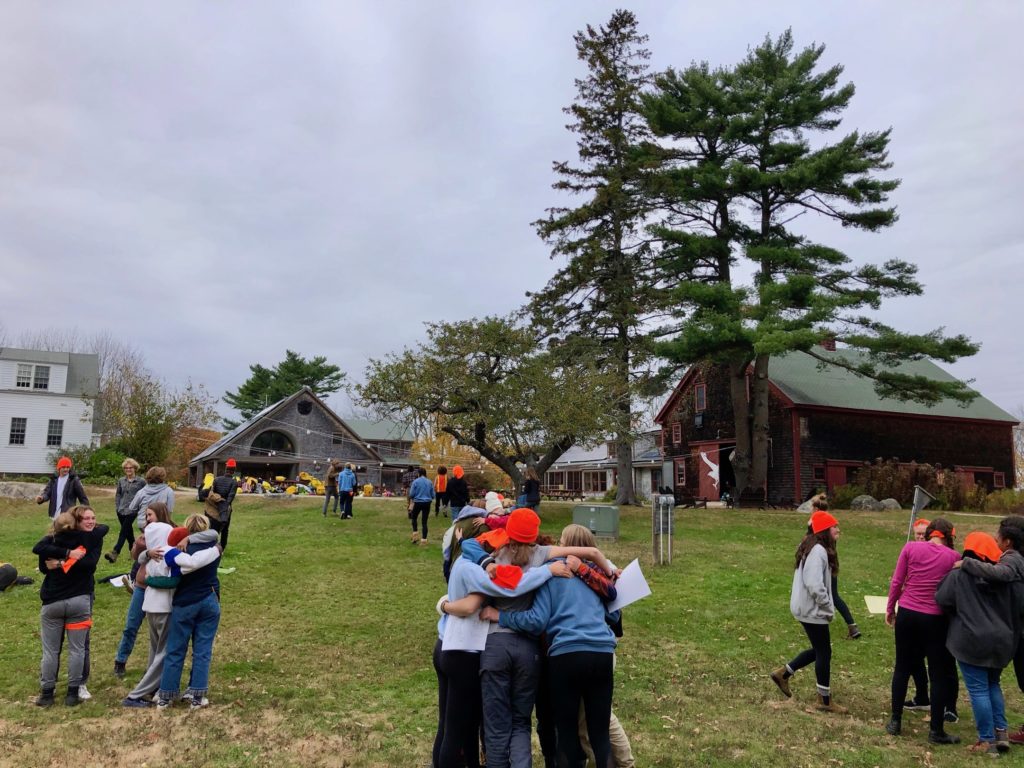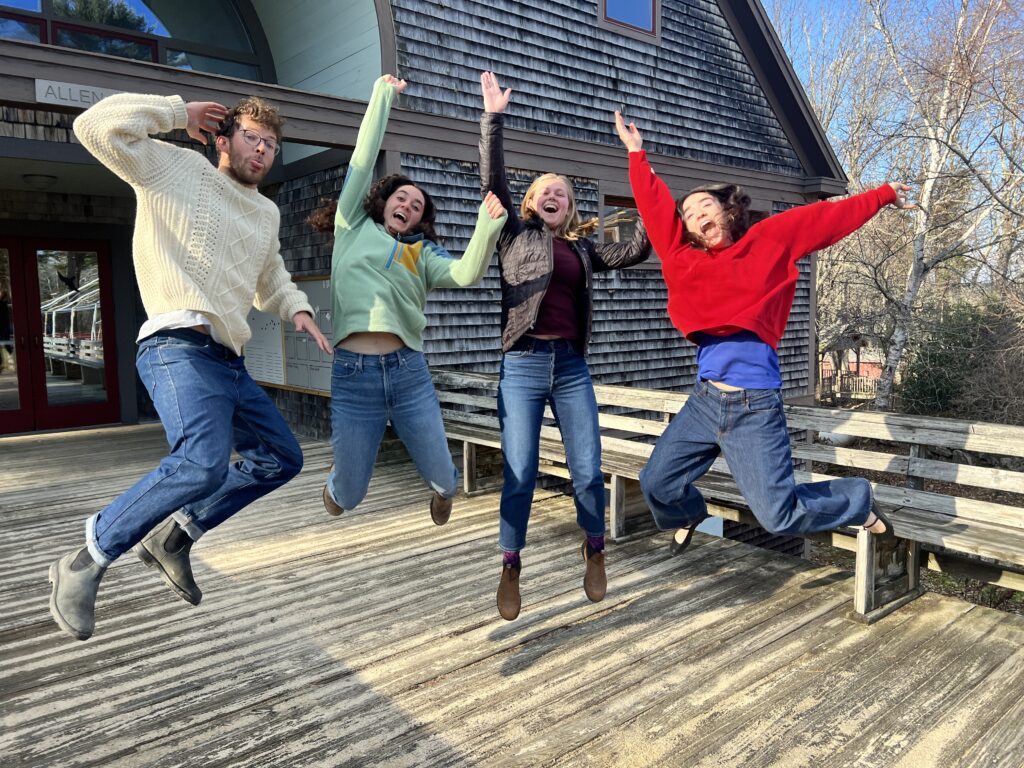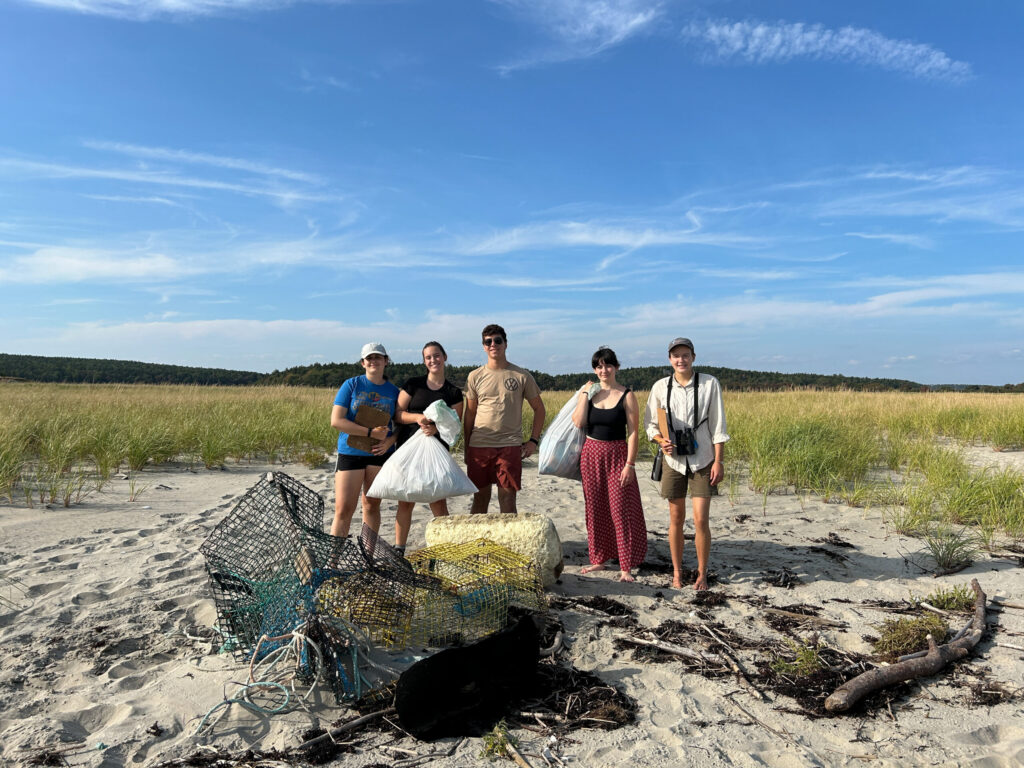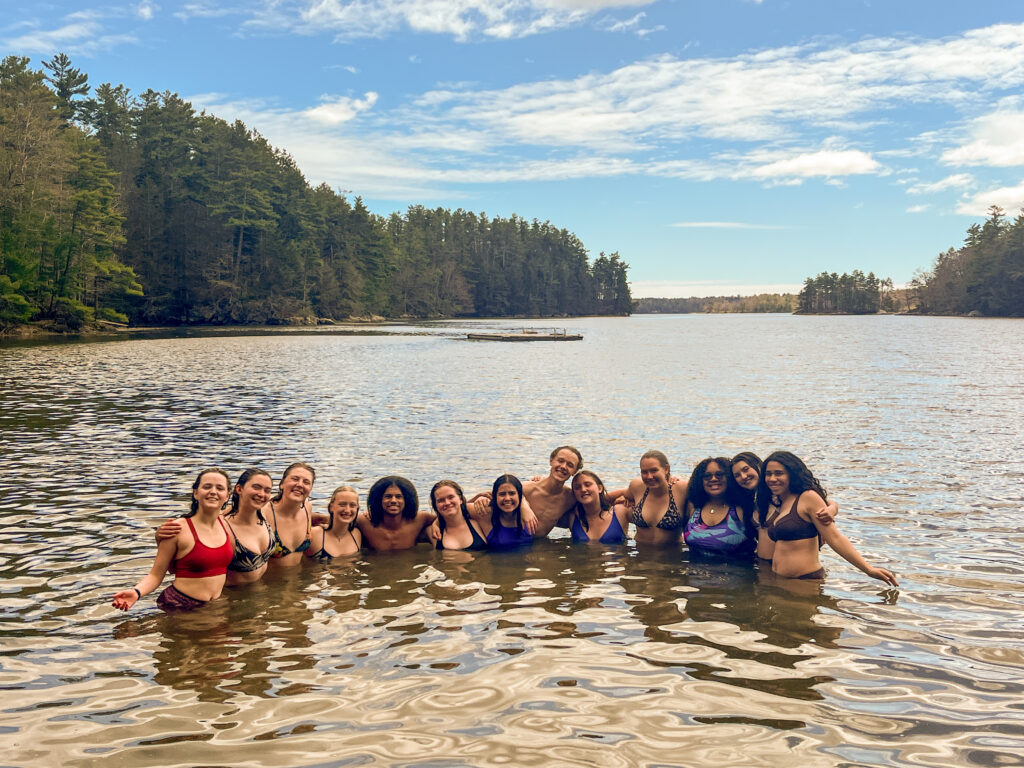This weekend before Halloween, the whole of our semester gathered. We all sat on Orchard field in the dimming sunlight. We circled together as cabin units, and the faculty formed a circle to hug our own. Theirs was large and loose, while we held a brittle tension among us. I got to look around at the people who have been so present in every day of my life since coming here. It was my last chance before solos. The wind brisked around us and the birds chirped on trees that leaned over the field. It was as if the whole of the Chewonki Neck was tuned in to our final moments of conversation.
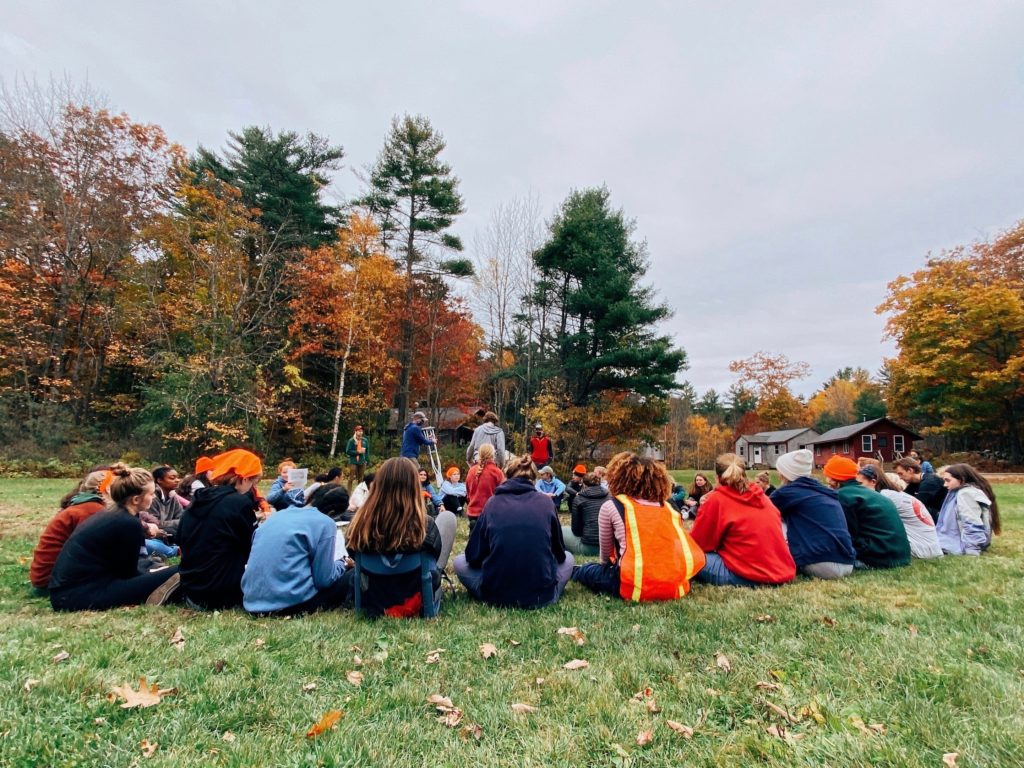
Some things were said outward, some were passed around the circle. There was a constant back and forth between the rings of students and faculty while we sat there. We traded intention as a group, casting lines of entangling hope and goodwill to one another. We needed some fastening to tether ourselves together. We were going into the woods for two days. This was big.
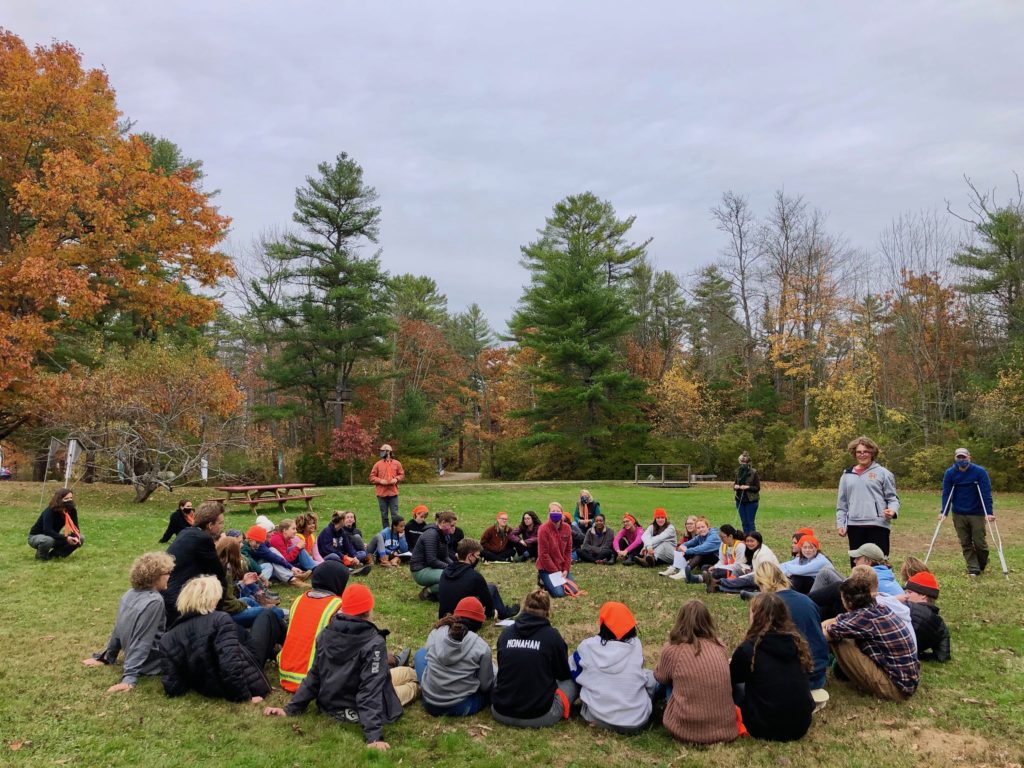
Preparation was the thing that had mottled our semester, building up to that day. Our natural cycle of life here has not been marked by weeks, but instead by the field labs and the wilderness trips and the outdoor leadership weekends. Time felt undefined without our regular experiences with the natural ecosystem around us. We have been slowly learning familiarity with our surroundings.
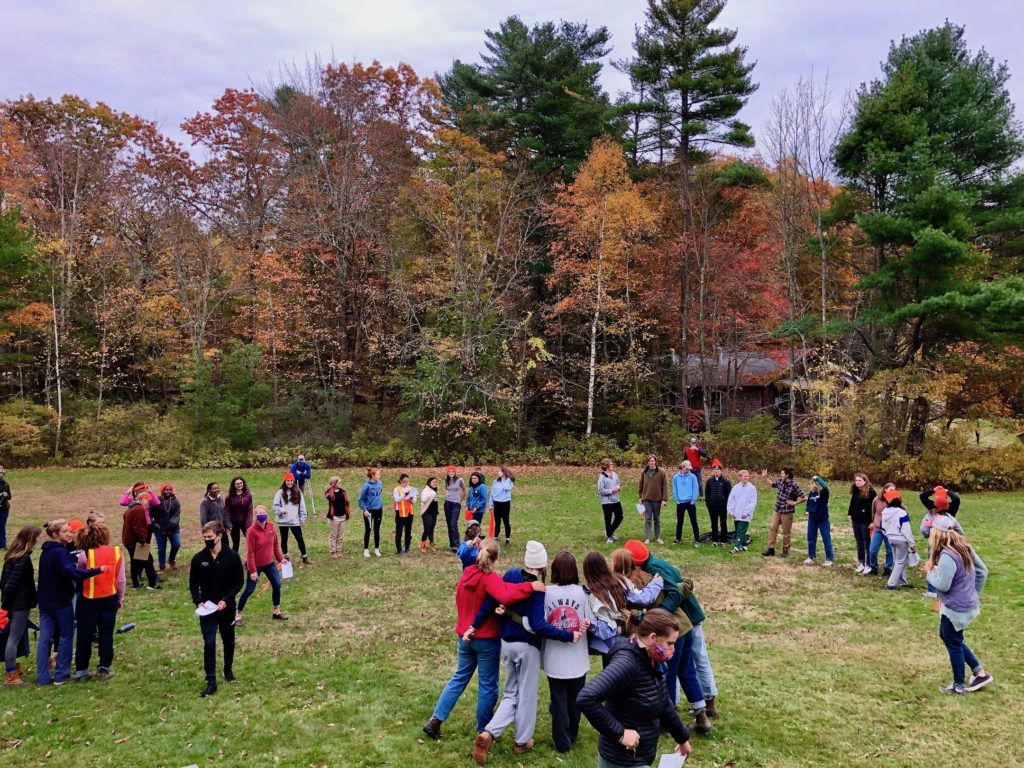
In the days leading up to that ominous and soulful circle in the field, there was talk about the emotional and mental tax we would pay for 48 hours in solitude. What did we want? When did we make the decision to do this? How did we want to shape this experience? “Elijah, why did you come here?” Prompts like these were another part of our preparation. We were seeded with these questions so that they would grow into answers and flourish on our days of introspection. The fields of our brains were constantly tilled by the teachers, and we were watered by the time spent among the natural elements of our world, so that maybe these questions (our seeds) would sprout and grow to be mulched and composted throughout the rest of our lives– enriching us.
We really do live on a farm.
Elijah Gallagher, Waynflete School, South Portland, ME
